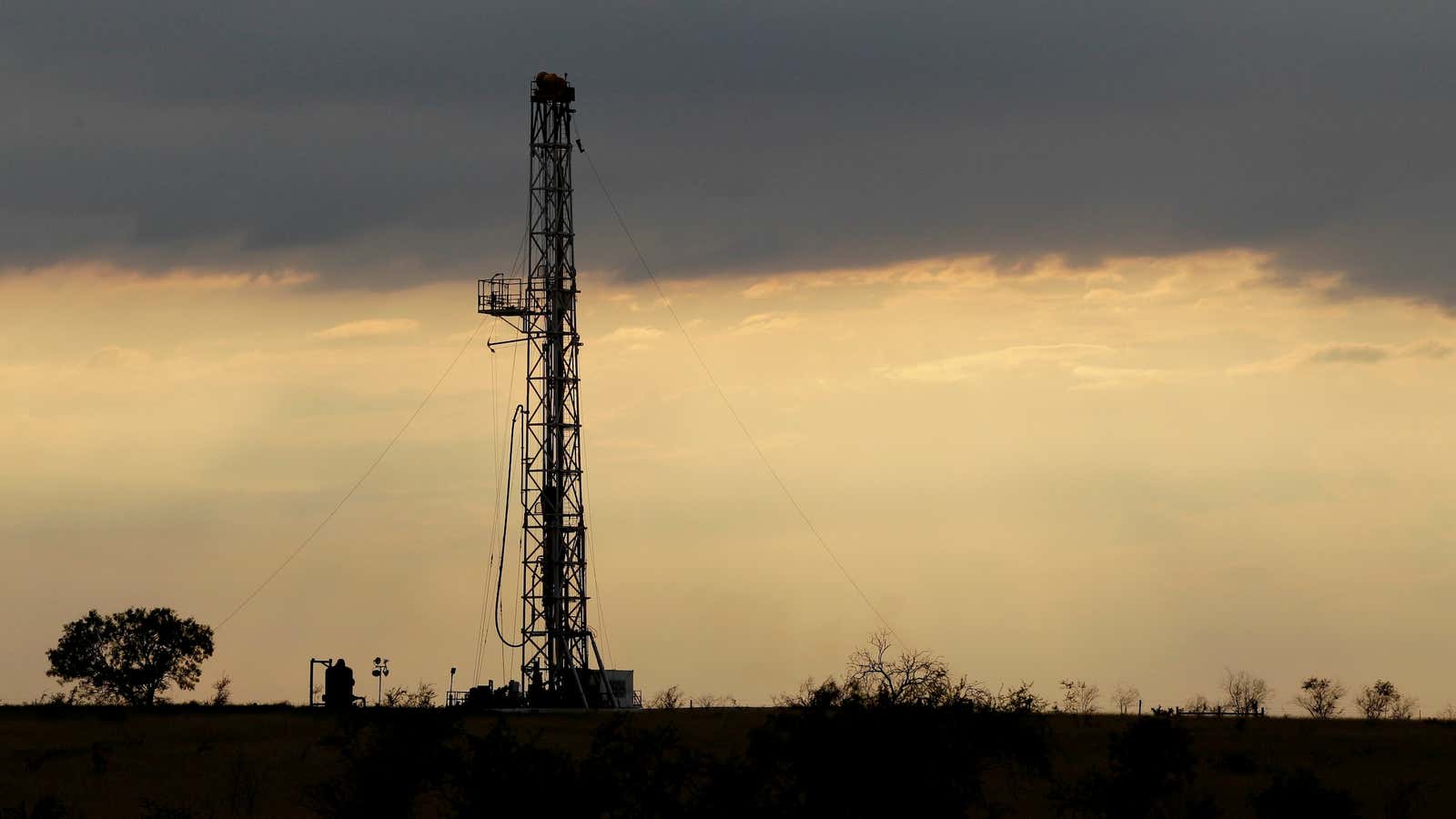The mandatory US federal budget cuts known as sequestration may seem like bad news for environmental programs. But there’s a green lining to government dysfunction: less money to carry out environmentally damaging policies.
Case in point: Citing the sequester, the US Bureau of Land Management (BLM) has postponed pending lease sales for oil and gas exploration in California until at least October, when the new fiscal year begins. Those leases include 1,278 acres (517 hectares) of government land sitting atop the Monterey Shale, a vast geological formation that holds the US’s largest reserve of shale oil, an estimated 15.4 billion barrels.
The only way to extract that oil is through the controversial practice of hydraulic fracturing, known as fracking. Environmentalists have already been trying to stop the sales by suing the BLM for not considering the environmental impacts of fracking, which involves injecting chemical-laced water under high pressure into wells to break up subterranean rock formations that contain oil and natural gas.
For example, in April, a federal judge in ruled that the BLM improperly approved leases in 2011 for 2,700 acres of land. The Center for Biological Diversity and the Sierra Club argued that the BLM has failed to evaluate the potential for fracking to pollute drinking water, cause earthquakes and harm endangered wildlife. Had the scheduled May 22 sale not been canceled due to the sequester, the environmental groups seemed likely to sue over the latest batch of leases.
Other efforts to ban or restrict fracking are moving rapidly through California’s Democrat-controlled state legislature. One bill would bar drillers from using freshwater in fracking or operating near aquifers. Meanwhile, the California agency that oversees the oil and gas industry is drafting regulations that would require drillers to disclose where and when they frack as well as reveal chemicals used in fracking fluid. Southern California air quality regulators imposed similar regulations on the oil and gas industry last month.
